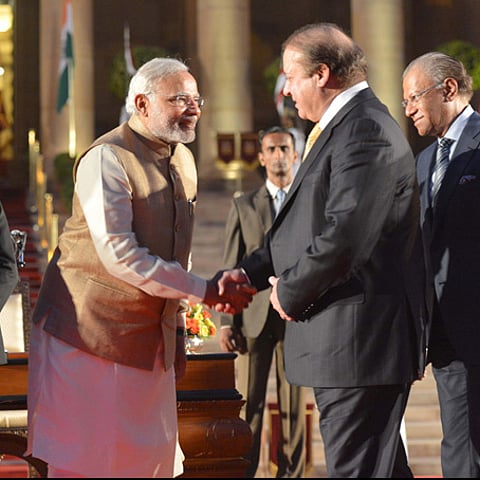Peace is a process, not an event
If Indian Prime Minister Narendra Modi's stopover in Lahore to meet his Pakistani counterpart Nawaz Sharif on 25 December, 2015 came as a surprise, the subsequent militant attack on the Pathankot airbase in India's Punjab barely a week later on 2 January, did not.
Given past patterns, many had been expecting an unfortunate incident to mar the bonhomie between Pakistan and India that Modi's Christmas Day visit had generated. Some expressed their apprehensions privately, some on social media. Indian intelligence officers revealed that they had been tracking information about an anticipated attack on the airbase in Pathankot for a few days before it took place. According to reports based on telephone intercepts and other evidence, the attack was launched from Pakistani soil.

